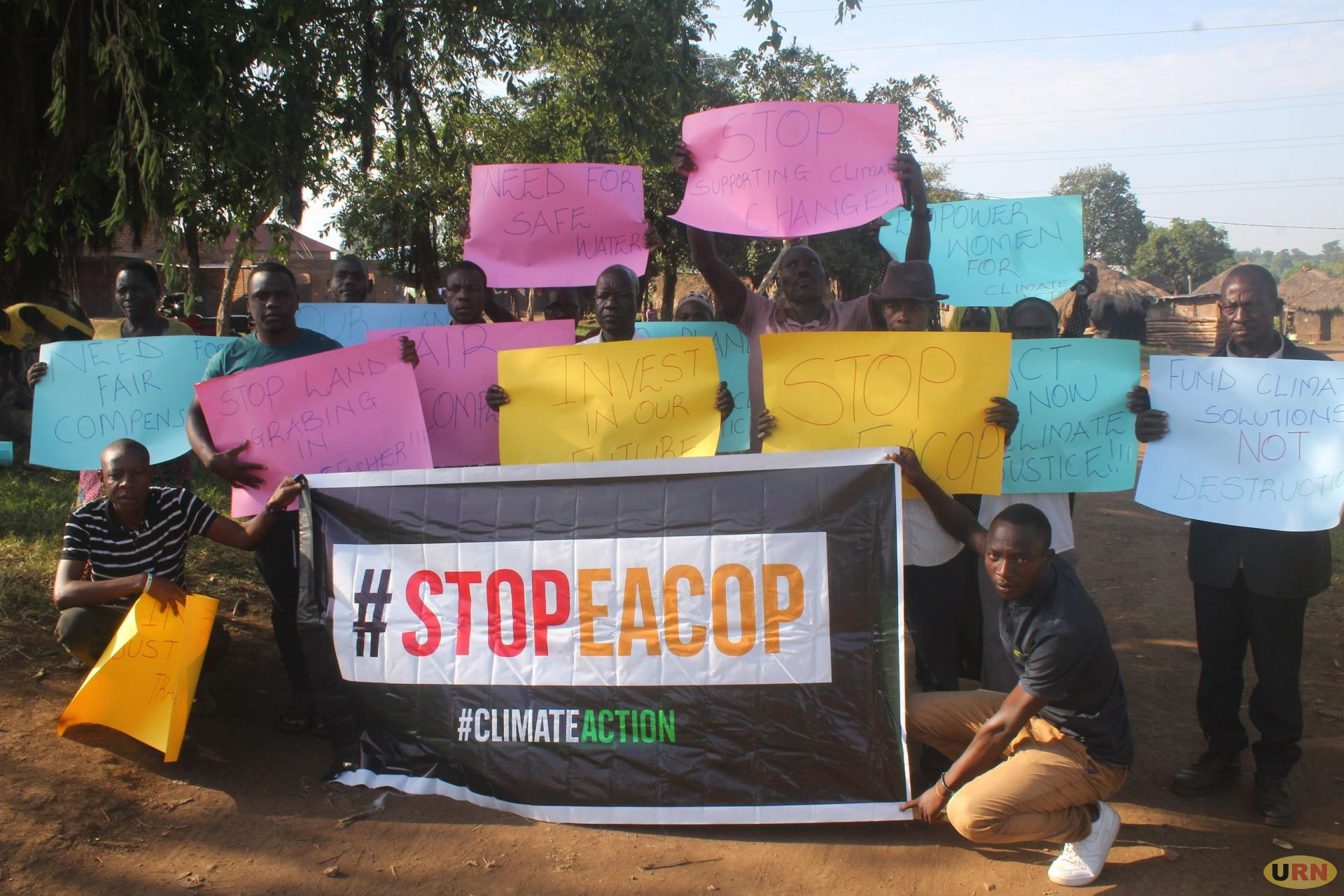Tuesday, July 9th, 2024 | By

The livelihoods of some of the people affected by oil feeder pipeline from Kingfisher Oil Field Buhuka in Kikuube district to connect to East African Crude Oil Pipeline (EACOP) in Kabaale, Hoima district remain hopelss as they wait for livelihood restoration program as promised by the Chinese National Offshore Oil Corporation (CNOOC) Uganda.
The residents say they oil company officials promised to improve the livelihoods and standard of living of the affected people through livelihood restoration program.
“During evaluation, CNOOC officials promised to take our children back to school, give us agriculture inputs and give us food for a certain period. I was expecting them to take to vocational institutions some of my children who have since dropped out of school. They (oil company officials) even asked us to submit the names of those that need to go to institutions. But nothing has happened. The situation is instead getting worse because the compensation was delayed and little,” said a 36-year-old Statumah Barondemu, a resident of Kitegwa B village in Kabaale Sub County in Hoima district.
Barondemu, who received cash compensation after her land was taken, said they promised livelihood restoration to come immediately after land acquisition is complete but it’s now 6 years of waiting. She said she was food self-sufficient prior to losing her land but was forced to start from scratch and routinely buy food.
According to Petroleum Authority of Uganda, the process of livelihood program activities in agriculture improvement, business and vocational trainings for 680 persons commenced in May 2021.
However, the affected residents say efforts to reach out to relevant officials to follow up on the promises has yielded no results as they don’t pick up or even return calls.
Mary Nyambubi, of the affected person who was selected to handle grievances accruing from the land acquisition process in Kitegwa B in Kabaale Sub County says most of the complaints she registers are related to declining income and lack of food due to displacements. She said she has tried to follow up in vain.
“When I was handed over the house, they promised to take care of my family by giving us food packages and agricultural inputs for a certain period of time, put some of my children in vocational institutions but nothing has happened,” said Nyambubi a mother of two.
The Livelihood Restoration Program is included in the government approved Resettlement Action Plan and includes various options for restoration and enhancement of livelihoods including training for improved agricultural production, financial literacy training and vocational training.
However, the program seems to be having challenges in restoring livelihoods and is instead impacting on various rights like rights to food, education and health. According to residents, there was also lack of clearly communicated timelines to project affected people on when these needed livelihood support would be provided.
Speaking to our reporter, Amiina Bukenya, the manager of Media and Publicity at CNOOC Uganda said different forms of livelihood restoration programs have been given depending on Environment and Social Impact Assessment and is being done in phases. She said some affected people have been given financial literacy trainings depending on the need.
“Most of the affected area is dry so we considered giving people trainings and access to clean safe water. Others will be supported in piggery and vocational trainings which are being provided in phases,” said Bukenya.
But affected residents like Nyambubi say whereas they indeed benefited from the financial literacy trainings and urged to mobilize groups, this was not sufficient enough to address the dwindling income of the affected people. She urges them to evaluate the livelihood restoration program to identify and address the gaps within the program if they want it to serve its purpose.
Copyright ©2025 Community Green Radio . All Rights Reserved. Designed : Lwegatech